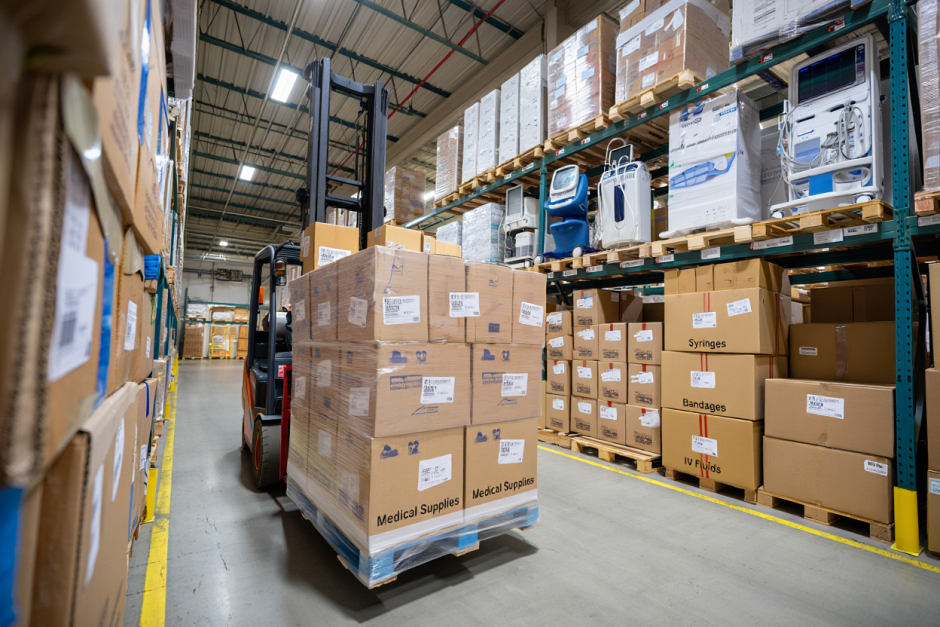In the medical field, every detail matters. Whether it’s pharmaceuticals, laboratory instruments, or medical supplies, transportation requires maximum precision, strict control, and compliance with safety standards. That’s why medical cargo transportation is one of the most responsible and regulated areas in modern logistics.
Why Medical Cargo Transportation Requires Special Attention
Transporting medical cargo leaves no room for error. These goods often demand specific storage conditions — controlled temperature, humidity, mechanical protection, and sterile environments.
This requires not only technically equipped vehicles but also experienced logistics specialists who understand international standards for the transportation of medical equipment and supplies.
Safe and Professional Medical Equipment Delivery
Medical equipment delivery involves handling highly sensitive, expensive, and often fragile devices such as MRI scanners, laboratory analyzers, and X-ray systems. Every step must be precise to prevent damage or malfunction.
Professional logistics providers use custom fastening systems, vibration protection, and soft packaging materials to ensure full security during transportation.
Pharma Logistics — Maintaining the Cold Chain
Pharma logistics is one of the most critical parts of the supply chain. A single temperature fluctuation can make an entire batch of medicine ineffective. Therefore, modern pharma logistics is built around maintaining the cold chain — a controlled temperature environment from warehouse to final destination.
Temperature-controlled vehicles, refrigerated warehouses, and real-time monitoring systems guarantee the safe and efficient delivery of pharmaceuticals.
Medical Supplies Transportation Without Borders
The demand for medical supplies transportation is global. Shipments may include surgical instruments, diagnostic tools, or protective gear. Depending on urgency and type of goods, deliveries can be made by air, land, or sea.
Efficient logistics networks make it possible to deliver even the most specialized medical items quickly and safely to hospitals, clinics, or distributors worldwide.
Consolidated or Full Cargo Solutions
Depending on the shipment size, medical goods can be transported as consolidated or full cargo loads. For smaller shipments, consolidated transport combines goods from different clients going along the same route, reducing costs. For larger shipments, full truckload transport offers a dedicated, sealed environment ensuring maximum control and protection.
This flexibility allows companies to balance cost, speed, and safety effectively.
Automation and Control in Medical Logistics
Modern technologies have revolutionized medical logistics. Companies now use automated monitoring systems that track cargo location, temperature, and condition in real time. This is particularly important for pharmaceuticals and medical equipment sensitive to environmental changes.
Clients can access live updates on their shipment status, enhancing transparency, trust, and efficiency across the supply chain.
The Role of International Standards and Certification
Successful medical cargo transportation requires not only technical equipment but also compliance with international safety standards. Logistics providers engaged in medical equipment delivery or pharma logistics must hold certifications such as ISO and GDP (Good Distribution Practice).
These certifications ensure that every stage of handling — from storage to transportation — meets strict global healthcare safety regulations.
Additional Benefits of Professional Medical Cargo Services
Professional medical logistics involves careful route planning, real-time tracking, and on-time delivery. The use of GPS tracking, automated temperature control, and risk management systems minimizes delays and ensures optimal conditions throughout the journey.
By choosing between consolidated or full loads, companies can optimize costs and improve overall logistics efficiency. Such a comprehensive approach guarantees reliability, speed, and the integrity of all medical cargo.
In short, medical cargo transportation requires precision, responsibility, and expertise. Partnering with an experienced logistics provider ensures that your medical equipment, pharmaceuticals, and supplies are delivered safely, on time, and in perfect condition — preserving quality and trust every step of the way.
Beyond safe delivery, modern logistics companies also provide customized solutions for healthcare organizations of all sizes — from small clinics to international pharmaceutical corporations. This includes dedicated consulting, optimized route planning, and insurance coverage for high-value medical cargo.
Such comprehensive logistics management helps reduce operational costs, prevent delays, and maintain consistent product quality.
Ultimately, professional medical logistics is not just about moving goods — it’s about safeguarding health, ensuring continuity of care, and supporting the entire healthcare ecosystem through reliable, transparent, and innovative transportation solutions.

